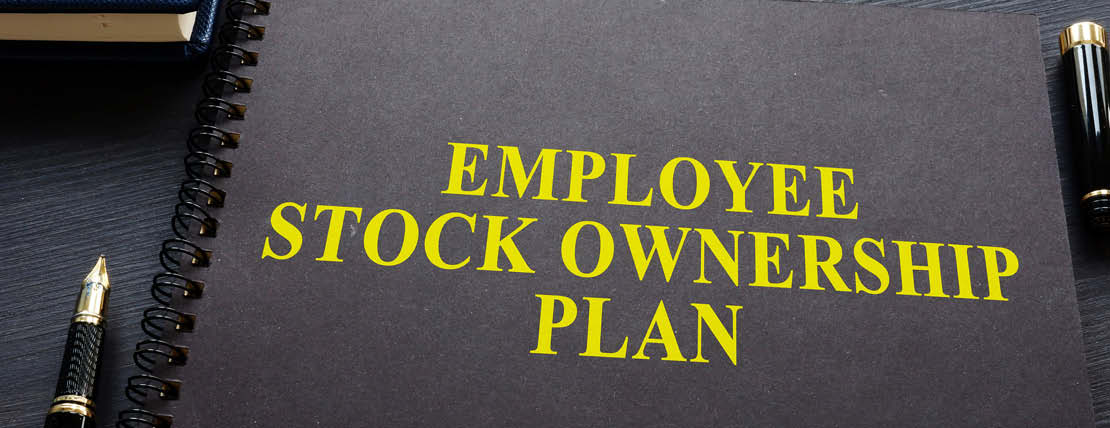For WorldatWork Members
- The Role of Employee Ownership in Total Rewards Strategy, Journal of Total Rewards article
- The Equity Alternative: Rewarding Employees Without Traditional Stock, Workspan Daily Plus+ article
- The Trust Equation: Building Trust Through Total Rewards, Workspan Daily Plus+ article
- Pivot on Pay: Getting Creative to Attract and Incentivize Talent, Workspan Magazine article
For Everyone
- Might ESOP Benefits Put the Success in Succession? Workspan Daily article
- DOL Proposes Rule on Valuing Employer Stock Purchased, Sold by ESOPs, Workspan Daily article
- Is Your Organization Living Up to Its Employee Value Proposition? Workspan Daily article
Two pieces of federal legislation on employee stock ownership plans (ESOP) moved one step closer to becoming laws after the U.S. Senate approved each by “unanimous consent” on Thursday, Oct. 9. The bills advanced to the House of Representatives, with debate and eventual vote forthcoming.
Passing the Senate were:
- The Employee Ownership Representation Act (Senate Bill 1728), which seeks to amend and/or create ESOP guidance and advisory bodies. The bill was introduced in May by Sen. Bill Cassidy (R-Louisiana), the chairman of the Senate’s Health, Education, Labor and Pensions (HELP) Committee.
- The Retire Through Ownership Act (Senate Bill 2403), which aims to set a statutory definition of the term “adequate consideration” in connection with mergers, acquisitions and other transactions involving ESOPs. The bill was introduced in July by Sens. Roger Marshall (R-Kansas) and Tim Kaine (D-Virginia).
A third ESOP-related bill, the Employee Ownership Fairness Act (Senate Bill 1727), was tabled from Senate voting consideration. That bill, introduced by Cassidy in early October, sought to exclude ESOP contributions from the limits currently applied to define contribution (DC) benefit plans. It is not immediately known whether the Senate plans to reconsider the bill.
Expanded Representation
The Employee Ownership Representation Act would address a variety of ESOP-related needs by:
- Adding two representatives from the ESOP corporate community to the Advisory Council on Employee Welfare and Pension Benefit Plans, also known as the Employee Retirement Income Security Act (ERISA) Advisory Council. The 15 members of this entity are appointed by the Secretary of Labor to advise the Department of Labor (DOL) on ERISA matters. No current members specifically represent the interest of ESOPs.
- Establishing an Office of Employee Ownership within the DOL (but outside of the Employee Benefits Security Administration). The entity’s director would be tasked with carrying out the Employee Ownership Initiative established under Section 346 of the Setting Every Community Up for Retirement Enhancement (SECURE) 2.0 Act.
- Appointing an “advocate for employee ownership” within the Employee Ownership Initiative. This representative would submit an annual Congressional report with recommendations to resolve barriers and incentivize employee-ownership practices.
- Establishing an Advisory Council on Employee Ownership, with seven members appointed by the Secretary of Labor to serve two-year terms. Out of this group, four members would represent employees, one would represent employers with an active ESOP (or similar worker-owned cooperative), one would represent ESOP providers, and one would represent ESOP associations or similar member organizations.
“Every American deserves to retire with dignity and security,” Cassidy stated in a press release on the HELP website. “By strengthening ESOPs, we empower workers to have a stake in their company and build wealth for themselves and their families.”
‘Adequate Consideration’
Increased clarity and risk mitigation are at the heart of the Retire Through Ownership Act. If passed into law, ESOP plan fiduciaries would be able to “rely in good faith” on an independent professional expert business appraiser who utilizes valuation practices as described in the Internal Revenue Service’s Revenue Ruling 59-60.
According to the bill, ESOP fiduciaries currently operate with uncertainty and potential legal liability, even when acting “prudently and in good faith” by hiring qualified, independent business valuation experts. The bill sponsors contend the lack of a well-defined method for valuation has had a “chilling effect” on ESOP formation.
“For 50 years, the ESOP community has been pleading for clarity, and today, we delivered,” said Marshall in a press release. “This bill provides the certainty needed to protect and expand employee ownership across America.”
James Bonham, the president and CEO of The ESOP Association, a nonprofit education and advocacy group supporting employee ownership, called the bill’s Senate passage “a landmark moment for ESOPs.”
“[The legislation, if it becomes law, would] eliminate regulatory uncertainty and ensure that ESOPs and trustees who follow clear rules will not be subject to needless litigation and harassment by the government and plaintiffs’ bar,” he said in a press release.
Editor’s Note: Additional Content
For more information and resources related to this article, see the pages below, which offer quick access to all WorldatWork content on these topics:
#1 Total Rewards & Comp Newsletter
Subscribe to Workspan Weekly and always get the latest news on compensation and Total Rewards delivered directly to you. Never miss another update on the newest regulations, court decisions, state laws and trends in the field.









